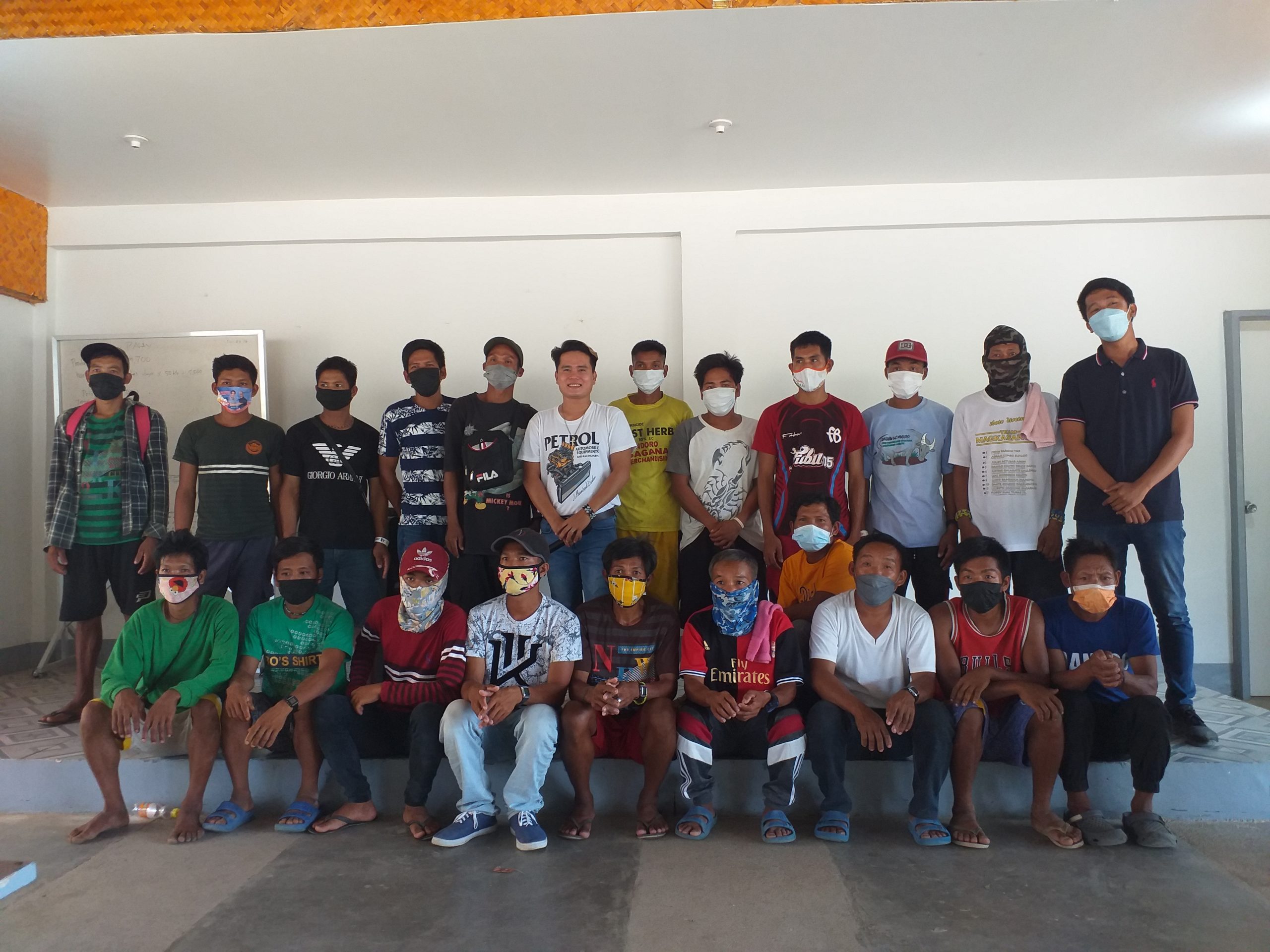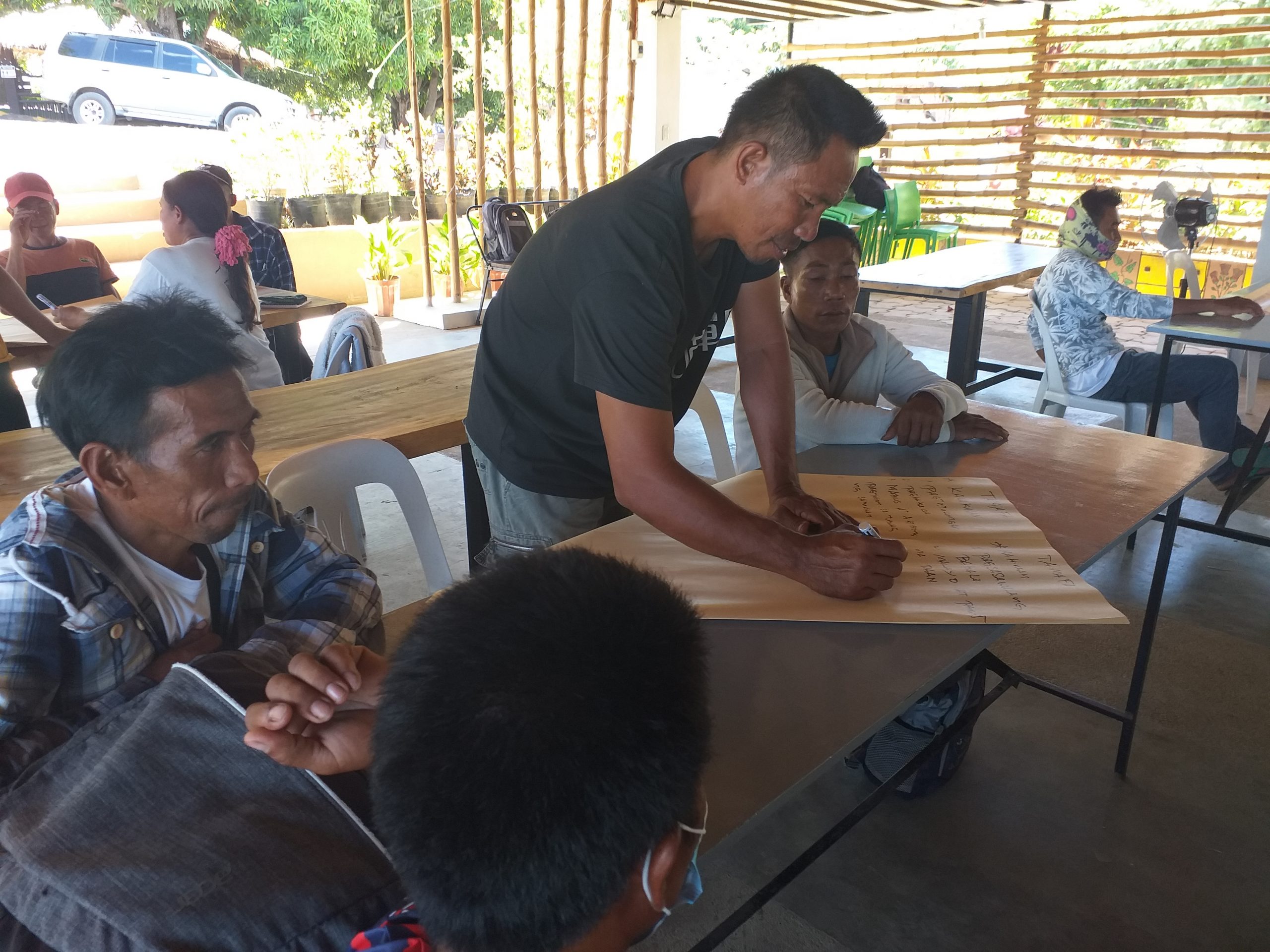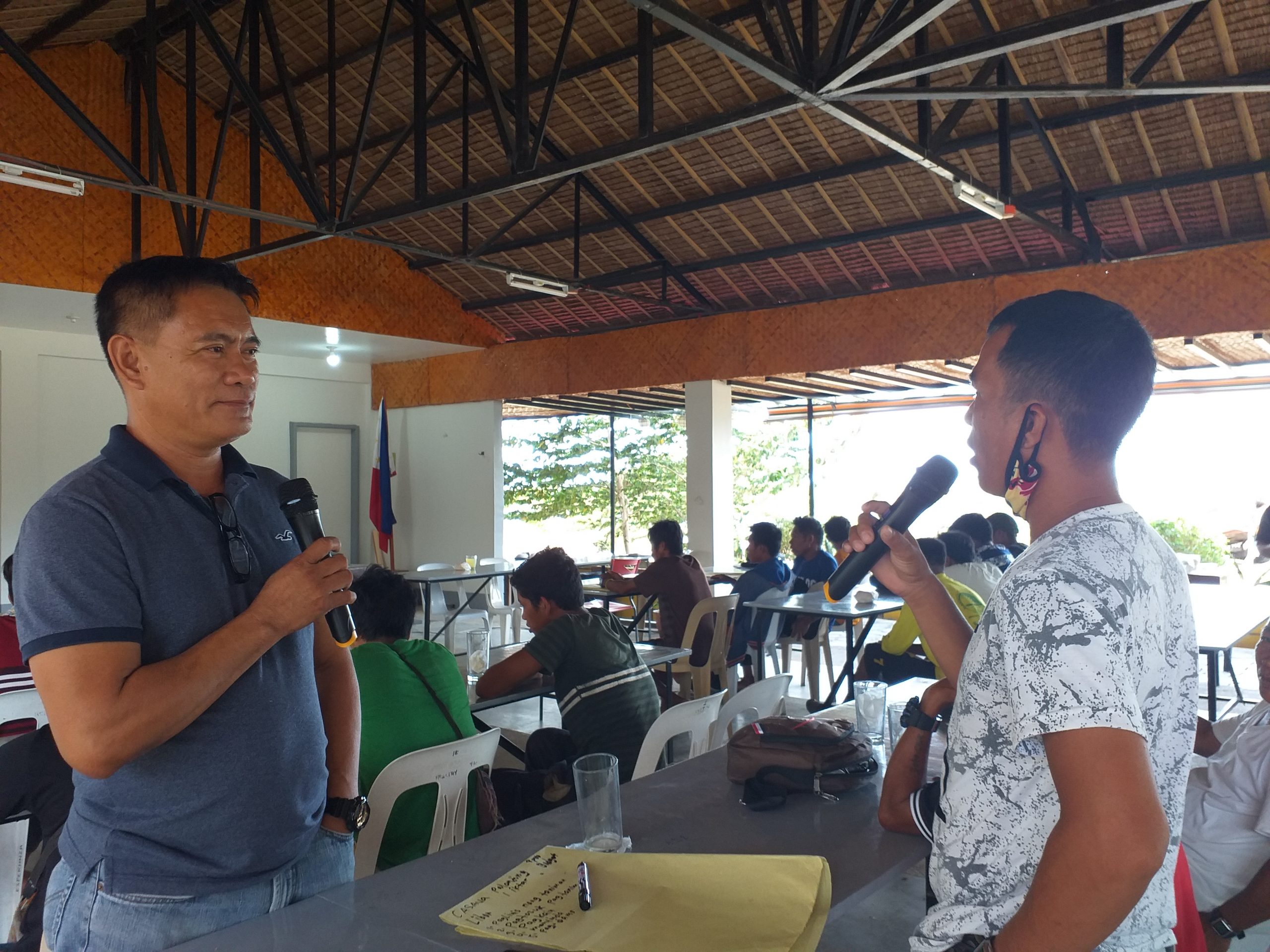OCCIDENTAL MINDORO, April 6, 2022 – The Department of Agriculture – Special Area for Agricultural Development (DA-SAAD) Program hosted a Technical Training on agripreneurship, as well as an Organizational Management Training for 15 indigenous people (IP) farmers’ associations (FA) aimed at fostering management and marketing skills through a series of assessments and discussions.
The training was attended by 75 participants from the municipalities of Rizal, Magsaysay, and San Jose. Furthermore, it was conducted in partnership with the DA Farm and Fisheries Clustering and Consolidation (F2C2) and eAgribusiness and Marketing Assistance Service (AMAS) team.
Three sets of two-day training covered discussions and workshops on agripreneurship and organizational management. Each association sent five representatives to participate in each set of training.
Rizal
The first batch of participants are members of Pangkalikasang Samahan ng Buhid sa Bato Singit, Samahan ng Katutubong Buhid sa Sitio Panlabayan 1, Kalipunan ng Tribung Buhid Lanaban, Kasuyan, at Langog, Mamamayang Kabalikat sa Pangangalaga ng Kagubatan, and Samahan ng Katutubong Buhid sa Sitio Albunan 1. The participants were introduced to value chain development as basis for analysis presented by Ms. Faith Paulmanal, Administrative Assistant from F2C2.
The value chain development teaches farmers to engage in good agricultural practices such as identification of the best way to harvest and transport their products to prevent damage. When quality is preserved, their products will be more appealing to buyers and their sales will be secured.
Strengths, Weaknesses, Opportunities, and Threats (SWOT) analysis was introduced and conducted to assess the current situation of each association and to give direction to the workshop. Unity and diligence are the common strengths identified, while lack of resources such as farm inputs and machinery weaken the group.
Damage to products and difficulty securing buyers were identified as a challenge as some associations are situated in far-flung areas where there is a lack of farm-to-market roads (FMR). Natural calamities such as storms and pest infestations are listed as threats that farmers have to be prepared for.
Establishing a Bagsakan center near the farmers’ area, or a common trading center where farmers can deliver their products is seen as a possible solution to cut the distance between producers and the market and avoid damage to goods.
The beneficiaries are engaged in traditional rice, cassava, and ginger production.
Magsaysay
Mr. Rustom Gonzaga, a Marketing Specialist from DA-AMAS, spearheaded the workshop for the second batch. This batch of training sessions focused mainly on value-adding strategies and processes since the 26 IP farmers from Magsaysay are engaged in food production focusing on cassava, upland or traditional rice, and corn.
During the discussion, cassava producers from Calachuchi Indigenous Farmers Association (CIFA) and Samahan ng Katutubong Ratagnon Lupaing Ninuno (SAKARALUNI) shared that they are having difficulty in earning from cassava production due to its low prices and their lack of connection with cassava assemblers and buyers, which is why there are farmers who stopped planting the crop.
To address this, the beneficiaries asked for support as they want to have a direct connection with San Miguel Corporation – a well-known cassava buyer – and create a buying station in the province to cut travel expenses for their goods and omit the need for middlemen which will result in higher income.
Mr. Gonzaga encouraged the associations to improve the quality of their products to maintain the high value and quantity of their products as this will give them wider market options and give them bargaining power.
Mr. Vilmar Robes, SAAD Area Coordinator, is making arrangements on establishing connections with San Miguel Corporation. The Municipal Agriculture Office (MAO) also offers support on the marketing side, giving farmers options on where to sell their goods.
San Jose
A brief review of the SAAD Project’s objectives served as a primer for the last batch of beneficiaries from five (5) IP associations in San Jose who are involved in cassava and rice production and in providing farm services.
The analysis showed that there are instances where products such as bananas and cassava are produced only for food consumption as the farmers do not know how to set the right price. The F2C2 specialist taught the IP farmers to compute their farm expenses to help them set the right price to avoid losses, ensuring their income.
Marketing strategies such as branding and promoting their goods appealed to IP farmers, “Natutunan ko na dapat pinagpaplanuhan pala ang pagnenegosyo. Kagaya ng tinuro ni Sir (Gonzaga), hindi lang kami magsasaka, pero negosyante rin. Maganda pala kapag may pangalan ang aming produkto dahil nakakadagdag ng halaga ng produkto,” shared Mr. Daboy Bercacio, Treasurer of Samahang Buhid at Hanunuo Mangyan ng Brgy. Naibuan.
(I learned that business should be planned carefully. Just like what Sir [Gonzaga] said, we are not just farmers, but also entrepreneurs, and having a name for our products is a good marketing strategy because it adds value to our products.)
Towards Agripreneurship
Mr. Rod Dagay Lopez, Secretary of Sitio Dulis Abong Salafay Hubkob Farmers Association (S. DASH FA), shared that the workshop broadened his knowledge, specifically on agribusiness.
“Unang beses ko lang maka-attend sa ganitong klaseng pagsasanay. Medyo kinakabahan pa ako. Pero marami akong natutunan tungkol sa pagnenegosyo na hindi ko alam noon. Gusto kong gawin ‘yong mga natutunan ko para umunlad ang aming samahan.”
(This is my first time attending training like this. I am a little bit nervous. But I learned a lot about business that I did not know before. I want to apply the things that I have learned for the improvement of our association.)
At the end of each of the training, Mr. Gonzaga invited the participants to share their learnings with their fellow farmers and encouraged them to put their newly-gained knowledge into practice as a team. Each municipality’s MAO, with SAAD Area Coordinators, gives continuous support to farmers in all aspects including the marketing side.
The Organizational Management training is under the Marketing Assistance and Enterprise Development component which corresponds to the program’s initiative to help communities create enterprises by establishing market linkages and providing technical assistance, such as training, and logistic support, while the agripreneurship training is under the Social Preparation Component which aims to ensure the preparedness of the program beneficiaries in managing SAAD’s interventions. ###
Writer:
Dianne Francis A. Sy, SAAD Information Officer I
Sources:
Vilmar J. Robes, SAAD Area Coordinator – Magsaysay,
Mario S. Paz Jr., SAAD Area Coordinator – Rizal,
Jercel N. Catubig, SAAD Area Coordinator – San Jose,
Relan S. Sabac, SAAD Area Coordinator – Calintaan,
Rod Dagay Lopez, Secretary – Sitio Dulis Abong Salafay Hubkob Farmers Association,
Daboy Bercacio, Secretary – Samahang Buhid at Hanunuo Mangyan ng Brgy. Naibuan,
Faith Paulmanal, Admin Assistant II – DA Farm and Fisheries Clustering and Consolidation.




Comments (0)